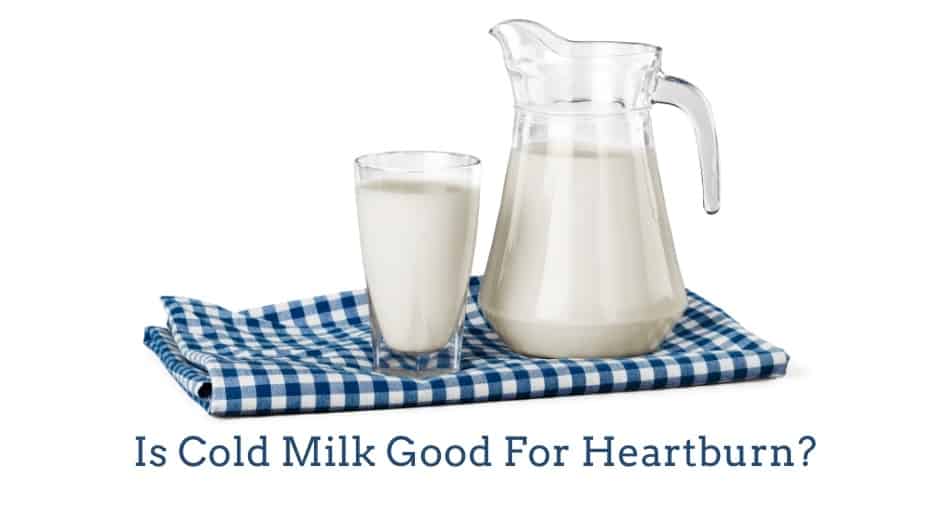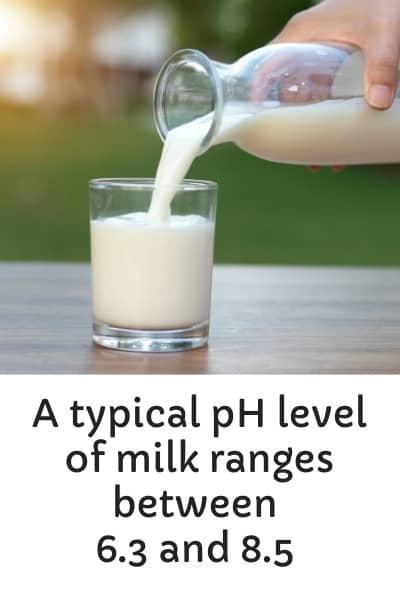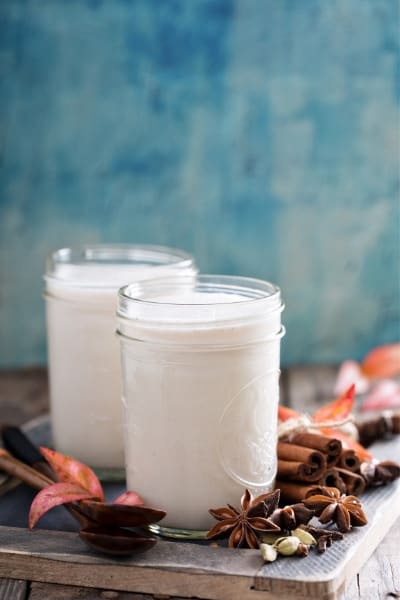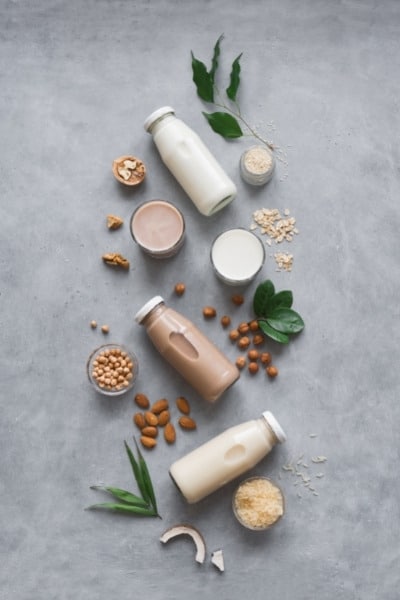Milk is a very common beverage that people include in their diets. You can drink it on its own, add it to your coffee, or incorporate it into various dishes.

It’s high in various nutrients, minerals, and vitamins that benefit your health. Some people even believe that drinking a glass of cold milk might alleviate heartburn and other symptoms of acid reflux.
But is there any truth to this? Can milk help with heartburn?
Table of Contents
Is Cold Milk Good For Heartburn?
Drinking cold milk might potentially help soothe your esophagus and reduce the symptoms of acid reflux, including heartburn. But this might not be the case for everyone. In fact, whether a glass of cold milk improves your symptoms or not is very individual and also depends on the severity of your heartburn.
Milk is also rich in various minerals and vitamins that may help keep your digestive system healthy, which is another way you can reduce your acid reflux symptoms.
Don't know what to drink? Check out these articles: 20 Most and Least Acidic Juices and 20+ Alcoholic Drinks Ranked by Acidity Level
Is cold milk acidic?
A typical pH level of milk ranges between 6.3-8.5. While it’s not low, most pasteurized types of milk available in grocery stores are rather acidic.
Only fresh milk is alkaline-forming. Because of that, regularly drinking too much milk can contribute to more severe symptoms of acid reflux and GERD in some people.
The same goes for kefir and sour milk, especially when consumed in large amounts.

Whether you drink cold or warmed-up milk doesn’t seem to make a difference in its pH level and acidity.
Because of that, you can drink both types and still get the same benefits. On the bright side, cold milk might soothe your throat and esophagus more when you’re experiencing heartburn.
This is because it coats your digestive tract and cools it down, especially after the acid has risen up your esophagus.
How can cold milk help with heartburn?
Milk contains a good amount of protein, which has been shown to prevent heartburn and other acid reflux symptoms in most people.
Experts believe that this benefit is due to the fact that protein boosts the secretion of gastrin, which is a hormone that promotes the emptying of your stomach’s content.
When your stomach isn’t full, there’s nothing to rise up your esophagus and cause heartburn. So, drinking milk may help you in this way.
Whether you drink milk cold or warmed-up, it’s high in calcium. According to some studies, a high intake of this mineral can reduce the risk of acid reflux symptoms like heartburn.

Unfortunately, it takes a while for your body to absorb nutrients from food. So, to get the benefits of calcium, make sure to drink milk and consume calcium-rich foods regularly to up your intake of this mineral.
Is milk good for you?
Milk is a very balanced type of dairy. Its calories come from carbohydrates, fat, and protein, which are all very important macronutrients.
Protein and fat help you feel full after eating, curbing your appetite, and helping you maintain a healthy weight.
A diet high in protein may even help you lose weight and build lean muscle mass. As a result, eating a lot of protein-rich foods is very important.
Among other vitamins and minerals, milk is a great source of vitamin D. This micronutrient helps regulate the amount of calcium in your body.
It’s also needed to keep your bones, muscles, and teeth healthy. Vitamin D is a fat-soluble vitamin, which means that it needs to be consumed with a source of healthy fat.
This makes milk a great way to ensure that most of the vitamin D is absorbed as it contains a good dose of fat, especially if you choose full-fat varieties.
Some studies also show that drinking full-fat milk might help prevent type 2 diabetes.
Diabetes increases your risk of heart disease, stroke, and kidney issues, so it’s important to try and prevent it from developing.

Experts believe that milk’s benefit against diabetes might be thanks to the protein it contains, which helps improve your blood sugar levels.
This also means that drinking milk can lower your blood sugar levels and prevent spikes in them, reducing tiredness and fatigue.
Milk also helps reduce your ‘bad’ cholesterol levels, preventing heart disease and stroke.
Due to its high potassium content, it also decreases your chances of heart attacks by keeping your blood pressure levels in check.
What’s more, milk from pastured or grass-fed cows contains more omega-3 fatty acids, which help prevent plaque buildup in your arteries and protect your blood vessels.
Can cold milk worsen your acid reflux symptoms?
Whole and full-fat milk is very high in fat. This macronutrient has been known to aggravate acid reflux symptoms in some people.
This is because fat is much harder for your stomach to digest, which forces it to produce more gastric acid.
Then, this acid can rise up your esophagus, causing heartburn. So, if you want to try drinking milk to ease your heartburn, go for low-fat milk versions.
Cow’s milk tends to be slightly acidic, which can increase gastric acid production. It can then reflux up your esophagus, leading to heartburn and other symptoms.
Because of that, some people recommend switching to plant-based types of milk, including almond or coconut milk.

These are alkaline and can help dilute your stomach acid and lower your risk of acid reflux symptoms.
Regardless of the temperature, you might also experience more severe heartburn if you drink flavored milk.
This is because these are often loaded with preservatives, artificial sweeteners, and sugar, which all contribute to acid reflux.
What’s more, these types of milk are very caloric, increasing your risk of weight gain. Because of that, make sure to avoid consuming too much flavored milk and stick to plain and natural varieties.
Conclusion
Milk has some potential benefits when it comes to soothing and preventing the symptoms of acid reflux, but there are also some cons to it.
It contains some beneficial nutrients that help heartburn prevention, but there are also a few downsides.
So, it all comes down to how your body reacts to drinking milk.
